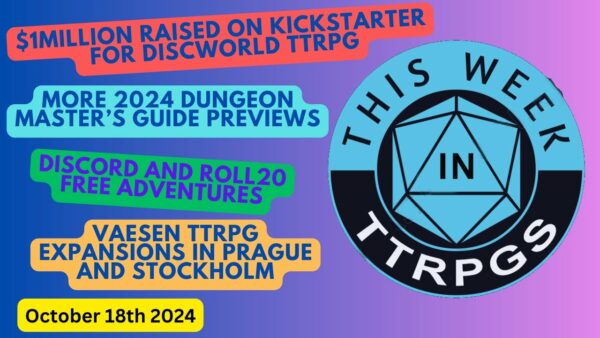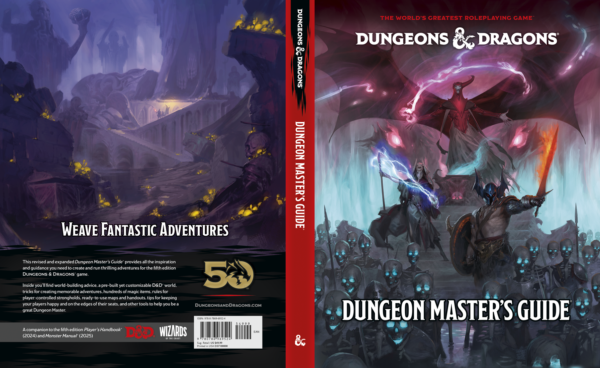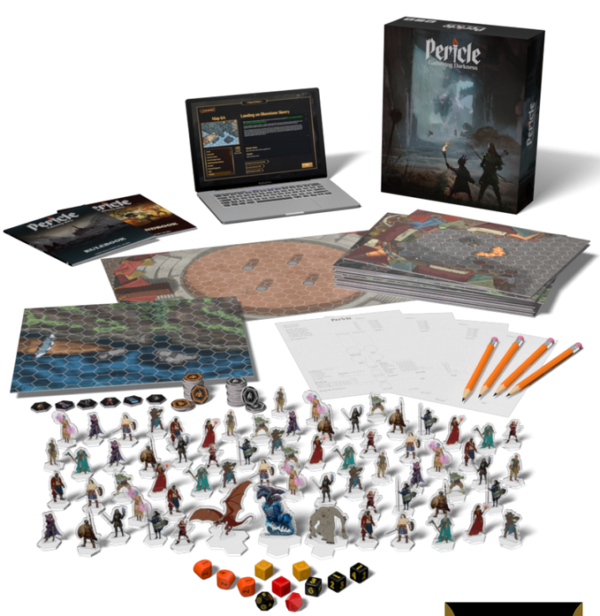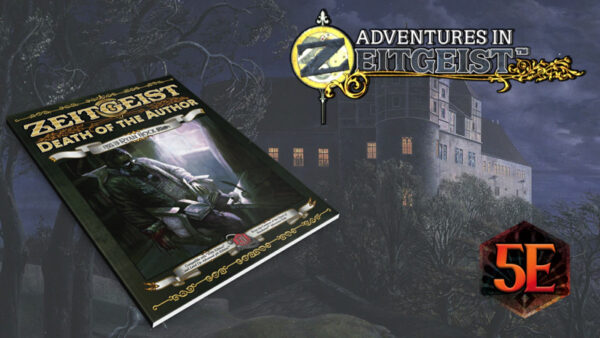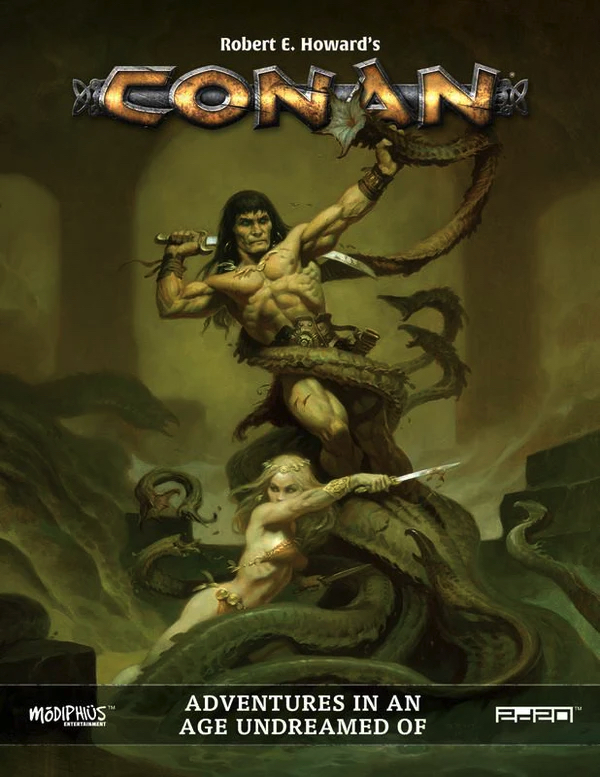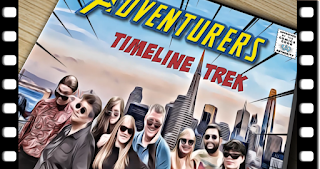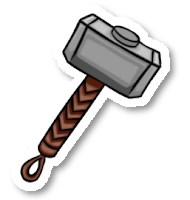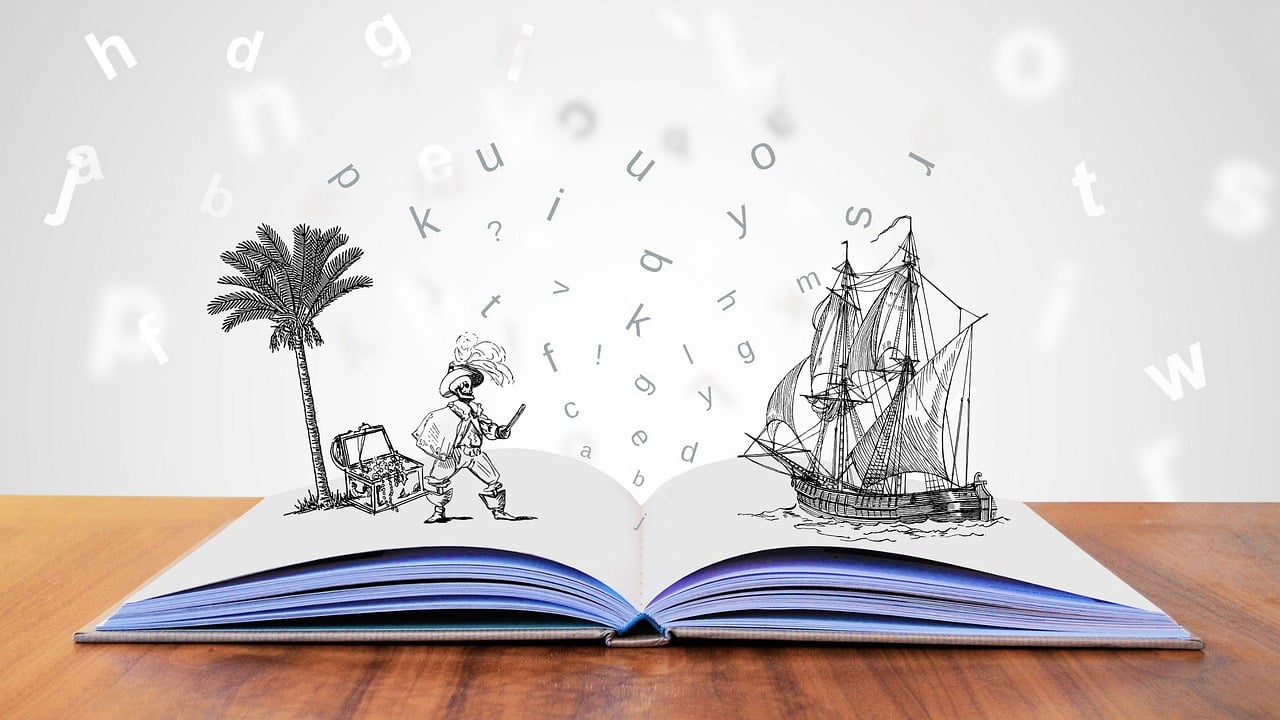

Want to make your own RPG? You have to start somewhere, and facing down the blank page is just the beginning.
Is Your Idea Useful?
So, it’s just you and a blank word document and a head full of ideas. Before you dive in, do an internet search or look at your own games library. Ask yourself if your game is really new. The more games you know the better. If your game isn’t that different, that doesn’t mean you shouldn’t make it. But you might consider making it a supplement to an existing game.
Too many nascent designers have only ever played D&D and often work on a game they think is massively new but is only really an amendment of D&D. If you’re a D&D fan, consider instead making it an Open Game License (OGL) setting book for a new D&D world, with a few tweaks to the rules here and there. There is a wealth of open systems beyond the OGL, from Savage Worlds to 2D20 to BRP and many more. Each is a tried and tested system you know will work and comes with a fanbase looking for more stuff.
Be Ready to Do the Work
This is the big one. To make a game is work, often hard work. Don’t believe what you see on television: Jessica Fletcher in Murder She Wrote seems to just run off a book every weekend; Carrie Bradshaw in Sex and the City makes a great income by just writing for an hour or so at the end of the week. It is easy to imagine that being a writer means waiting for the muse to strike, and then being just a conduit and the spirits guide your willing fingers on a typewriter as the game flows through you.
But for most of us, that’s simply not reality. The blank page is just as intimidating to experienced writers as novices. Don’t wait for the muse (it only appears when you’re not looking anyway) and just get something on the page. Just force yourself to get something down. You can always rewrite and edit afterwards, and at least you will have taken a few steps forward. If you are finding it hard it doesn’t mean you aren’t good at it, just keep going. That said, there are some days it’s just not going to happen, and it is fine to not write a word on those days. But part of the skill is recognising when you need to give yourself a push, and when you need to go for a walk instead.
To give you an idea of the scope of a typical project, an adventure is around 5,000 words, a small game book around 50,000 words and twice that for an average core book. You need to be prepared for that, and the time it will take. It is a marathon, not a sprint. But the good news is that (at this point) you don’t have a deadline. If you just get a little done as often as you can, you’ll make excellent progress.
Playtest with Someone Else
While you can never have enough playtesting (and you can start as soon as you have any rough notes) you also need to know when to stop and get the game out there. Otherwise you will never finish. If all goes well you can do a new edition a few years later, or just apply what you have learned to your next game.
But one thing you should do is pass the game to someone who has never seen it or heard you talk about it and see if they can make it work. You might run it for your group and it all looks good. But you already know the game, and it will also suit your style of play. Every gaming group is a little different, even playing the same game. So see how it works for someone else, without your guidance. That is what is going to happen when you sell it after all!
While some playtest results will be hard to hear, you also need to listen to them. You don’t do a playtest just to hear how great your game is. Find people who don’t like it and listen to what they say. They may have a valuable insight. They may also just be an idiot too though. Learn the difference and listen to all your critics. But it is your call what you do about any adjustments.
Learn how to filter what the testing is telling you. When we playtested Dune: Adventures in the Imperium one of the main criticisms we received from the beta test was that the system of Drives didn’t work. It didn’t make sense and people didn’t like it. But we were also playtesting the game at conventions with the excellent Wrecking Crew. Their main reports were that people loved the Drives system! So what that told us was that people would like it, but we needed to explain it much better than we had already.
You’re On Your Own…
Generally speaking, few major publishers are interested in taking on new games by new writers. They already have a series of game lines they are trying to support and are probably massively overstretched anyway. What they absolutely don’t want is “more ideas” either. Ideas are easy, and every game writer has at least 5-10 games in their head they’ve never had time to make. Only a fully fleshed out game is worth looking at. For the most part, you’re on your own.
But let’s assume you are lucky enough to interest a game company in your game. They will likely have notes. Sometimes it will be things their experience tells them need to be changed because they don’t work. But other times it will be to fit the style of games they make. To get your game made by someone else, you will have to be prepared to let them have creative input. Being prepared to give up the reins of your game to a third party is a compromise not every creative is willing to make, so consider carefully how you might take criticism or feedback on your game.
That said, there is a middle way in which publishers can help, and that is by taking you on as a “third-party publisher.” You will still have to make and produce the game, to the point it is ready to go to a professional printer, but they can take it from there. A third-party agreement is great for a small indie designer as the publisher will help you out, get the game printed, distributed into shops, and advise you on what you need to get the right sort of print files ready. Not only this, but they will get your game into larger distribution channels. While they’ll take a cut of your profits, your game will make much more money and have greater reach than if you just tried to sell it on your own.
…But You’re Not Alone
In the early days of tabletop role-playing games, there were few resources for game developers to get started. That’s changed for the better: There is now an array of indie game designer meetups, forums, and community support available to a new game writer starting out. They are full of people a little ahead of you on the path who can warn you of the pitfalls and offer advice. Get as much advice as you can, and then apply and adjust your game and your plans the way you think works best. There is nothing like producing a game you love, so make sure you still love your game by the time you get to printing it. You won’t please everyone, so make the game works for you.
New Year, New Game
If you’re looking for a new year’s resolution to finally get that game started, now’s your chance. While this might all sound like hard work (it is) it is worth it. There is nothing like the feeling of holding a book you have made in your hands. It never gets old. There is also nothing like seeing people do amazing things with your work, play great games and add the most incredible things you’d never have thought of. The journey may be hard, and you should be prepared for that, but it is worth every step.
Your Turn: What are you tips to get your game development started?


